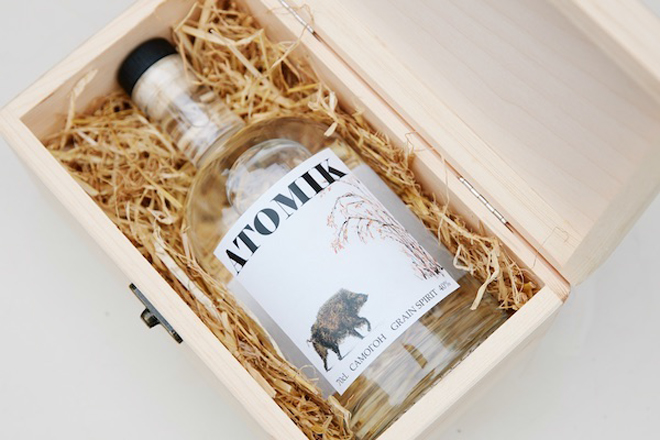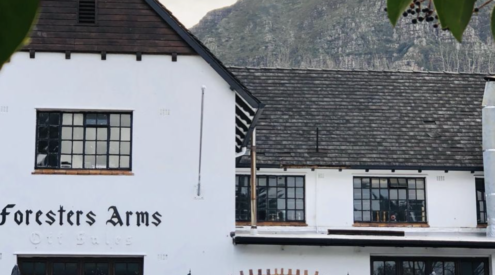While the eerie Ukrainian town of Pripyat has become the subject of a lot of media attention as a new ‘dark-tourism’ destination near the Chernobyl nuclear exclusion zone, researchers from the University of Portsmouth have decided to go against the grain, namely by turning it into something else – vodka.

Image: University of Portsmouth/The Chernobyl Spirit Company
On 26 April 1986 a reactor at the Chernobyl Nuclear Power Plant in northern Ukraine infamously exploded, and three decades on, life is beginning to take hold again and curious people have started flocking to the nearby town of Pripyat.
Scientists from the university have managed to process and distill rye grain grown in Chernobyl’s nuclear exclusion zone to produce a bottle of vodka daringly named ‘Atomik‘, which they claim has passed all radiological tests and is safe to drink. They were able to distill all impurities in the grain, which initially still tested positive for some radioactive contamination.
‘This might just be the most important bottle of vodka in the world for what it represents,’ said Professor Jim Smith from the School of the Environment, Geography and Geosciences. ‘Hopefully we can give back 75% of the profits from the enterprise to the local community to support their economic and social development.’
The project, which falls under the Chernobyl Spirit Company, has only managed to produce one bottle so far, but Smith says the company hopes to distill more and help give back to the local community.
Albeit a modest venture, Smith hopes the ‘high-quality’, unusual artisanal spirit will be a catalyst for creating jobs, investment and economic growth in the region.


















